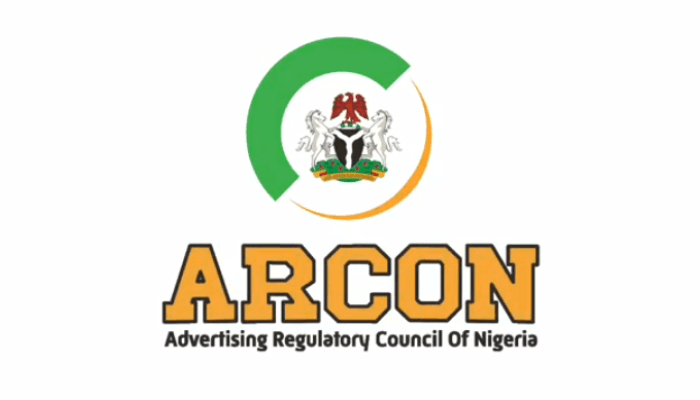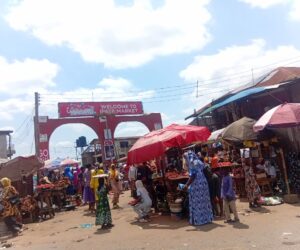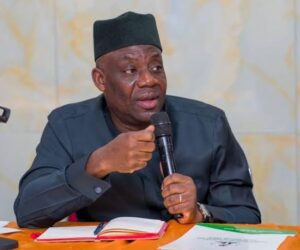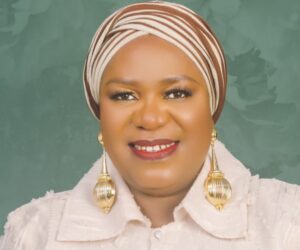Recently, while researching some global advertising regulatory frameworks to use for a thesis, I came across the UAE’s Federal Decree by Law No. 55 of 2023 Concerning Media Regulation. Having closely followed the development and implementation of Nigeria’s Advertising Regulatory Council of Nigeria (ARCON) Act 2022, I found myself drawn into a comparative analysis of these two important pieces of legislation. What emerged from this examination was a nuanced understanding of how different jurisdictions approach advertising regulation, and perhaps more importantly, a fresh perspective on the merits of Nigeria’s much-debated ARCON Act.
The timing of this comparison is particularly relevant, given the ongoing discourse surrounding ARCON’s regulatory approach and the various legal challenges it has faced since its enactment, from different quarters. Critics have often pointed to what they perceive as the Act’s overly broad scope and stringent penalties. However, when viewed vis-a-viz the UAE’s comprehensive media regulation framework, ARCON’s approach appears not as regulatory overreach like many have come to say it is, but as a sophisticated and necessary evolution in advertising governance for a complex, multi-ethnic, multi-religious democracy.
Some Historical Context
Nigeria’s journey toward comprehensive advertising regulation has been decades in the making. The ARCON Act 2022 is an upgrade from the Advertising Practitioners (Registration, etc.) Act Cap. A7 of 2004, which had become increasingly inadequate for regulating a rapidly evolving media landscape. The new Act, as stated in Section 2(1), aims to “create and provide a regulatory framework for the Nigerian advertising and marketing communications industry” while ensuring that “all advertisement exposed and directed at the Nigerian market is legal, decent, honest, truthful, respectful, and mindful of the Nigerian culture, constitutional tenets and relevant lawful enactments.”
The UAE’s approach, codified in Federal Decree by Law No. 55 of 2023, similarly recognizes the need for comprehensive media regulation in the digital age. Article 3 of the UAE law outlines objectives that include “regulating all media activities in the State of all types and forms” and “developing a modern media legislative and investment environment that keeps pace with global changes in the media sector.”
Both jurisdictions have recognized what has become a fundamental truth, which is that traditional advertising regulation frameworks are insufficient for governing modern multimedia ecosystems that span digital platforms, social media, and emerging technologies.
Scope and Jurisdictional Coverage
One of the most striking similarities between the two Acts is their comprehensive scope. ARCON’s jurisdiction, as outlined in Section 1(2)(d), grants the Council “exclusive power to determine, pronounce upon, administer, monitor and enforce compliance by persons and organisations on matters relating to advertisements, advertising, and marketing communication in Nigeria, whether of a general or specific nature.”
The UAE law has a similar breadth in Article 2, applying to “all persons, media establishments and institutions, media outlets and media free zones that practise media activities within the State.” Indeed, this is the reality of modern advertising, where content crosses traditional boundaries between print, broadcast, digital, and social media.
Critics of ARCON have often cited this broad jurisdiction as evidence of regulatory overreach. However, the UAE’s parallel approach shows that this comprehensiveness is not uniquely Nigerian excess but rather a global best practice for effective media regulation in the digital age. The UAE’s Article 8 defines media activities to include everything from “radio and television broadcasting including Internet Protocol Television (IPTV), over-the-top (OTT) or video on demand (VOD)” to “electronic and digital media activities” and even “video game and arcade game services.”
Registration and Licensing Frameworks
Both Acts establish robust registration and licensing systems, but with notably different approaches that reveal ARCON’s more nuanced understanding of the advertising ecosystem. ARCON’s registration system, detailed in Part VII (Sections 21-25), creates a tiered structure where it recognises different levels of professional development: student members, associate members, full members, and fellows.
Section 25(2) of the ARCON Act requires that associate members hold “a University Degree or Higher National Diploma in advertising, marketing, graphic arts, mass communication or other professional qualifications recognised by the Council” and be “of good character.” The progression to full membership under Section 25(3) requires five years of “continuous active practice as an advertising or marketing communications practitioner.”
The UAE’s approach in Articles 4 and 5 is more straightforward but arguably less nuanced, focusing primarily on legal capacity, good reputation, and obtaining “required approvals from the Concerned Authorities.” While both systems ensure professional standards, ARCON’s tiered approach better reflects the reality of professional development in the advertising industry and provides clear pathways for career advancement.
Content Standards, Cultural Sensitivity
Perhaps the area where both Acts converge is in their recognition of cultural sensitivity as a cornerstone of effective advertising regulation. ARCON’s Section 2(1)(b) requires that advertisements be “mindful of the Nigerian culture, constitutional tenets and relevant lawful enactments,” while the UAE’s Article 17 demands respect for “the cultural and civilisational heritage and national identity of the State.”
However, ARCON’s approach shows a greater specificity and practical applicability. The Act’s emphasis on Nigerian cultural values reflects the complex multicultural reality of Africa’s most populous nation, where advertising must transverse ethnic, religious, and linguistic communities. This sensitivity actually shows a sophisticated regulatory thinking that acknowledges the impossibility of creating exhaustive content lists while maintaining flexibility to address emerging cultural and religious concerns. Worthy examples of breaches of these where ARCON had to step in are Sterling Bank’s ‘Agege Bread’ Easter Ad, FIRS ‘Debt not tax’ Easter Ad, Peak Milk Ads, among other honourable mentions.
The UAE’s Article 17 provides a more extensive list of content standards, including requirements to respect “the Divine Entity, Islamic beliefs, monotheistic religions” and avoid content that might “harm national unity and social cohesion.” While comprehensive, this approach may be less adaptable to evolving social norms than ARCON’s principles-based framework.
Enforcement Mechanisms and Penalties
The penalty structures in both Acts may be subject to some form of debate, but a comparative analysis reveals ARCON’s approach to be both reasonable and proportionate. Under Section 32 of the ARCON Act, unregistered practitioners face fines of up to ₦500,000 for individuals (approximately $610 USD) and ₦1,000,000 for organisations (approximately $1,220 USD) on first offence, with penalties doubling for subsequent offences.
The UAE’s Article 23 imposes administrative fines ranging from 1,000 to 1,000,000 AED (approximately $270 to $270,000 USD), with the possibility of doubling for repeated violations up to 2,000,000 AED ($540,000 USD). When viewed in terms of purchasing power and economic context, ARCON’s penalties are actually more moderate than those in the UAE framework.
Additionally and more importantly, ARCON’s Section 57(4) explicitly requires that “in the exercise of its powers to impose a penalty under this Act, the Council shall accord the person in alleged violation a fair hearing.” This due process protection, often overlooked by critics, shows the Act’s commitment to procedural fairness.
Institutional Structure and Governance
The institutional frameworks established by both Acts reveal important differences in governance philosophy. ARCON’s structure, as outlined in Section 3(2), makes room for stakeholder representation from organisations such as the Association of Advertising Agencies of Nigeria (AAAN), Advertisers Association of Nigeria (ADVAN), and Media Independent Practitioners Association of Nigeria (MIPAN). This multi-stakeholder approach ensures industry input in regulatory decision-making. Beyond this, ARCON boasts subcommittees made up of these different bodies and more with different objectives.
The UAE’s structure, while efficient, is more centralised around the UAE Media Council and government appointees. While this may enable faster decision-making, ARCON’s inclusive approach better serves a democratic society where regulatory legitimacy depends on stakeholder buy-in and industry participation.
Innovation and Future-Proofing
Both Acts show a forward-thinking approach to emerging technologies, but ARCON’s framework shows particular sophistication in addressing digital advertising challenges. Section 8(i) empowers ARCON to “regulate and control creative ratings, advertising, advertisement and marketing communications awards, marketing communications research, audit bureau of circulations, audience measurement, consumer insight research and other related researches,” While the UAE’s Article 12 addresses electronic and digital media activities, requiring permits for social media advertising and content provision. However, ARCON’s approach appears more comprehensive in addressing the full spectrum of digital advertising challenges, including research methodologies and audience measurement standards.
A Balanced Perspective
Critics who argue that ARCON’s registration requirements are burdensome should consider that the UAE requires licensing for virtually all media activities, including individual social media content creators under certain circumstances (Article 12(2)). ARCON’s tiered registration system actually provides more flexibility and recognition of different levels of professional engagement than many international frameworks.
The penalty structure, when viewed alongside the UAE’s higher financial penalties, appears moderate and proportionate. Also, both Acts demonstrate concern for protecting local content and cultural values, but ARCON’s approach appears more nuanced and practical. Section 8(j) requires ARCON to “ensure the preservation of Nigerian local content and use of indigenous skills as an important element in advertising, advertisement and marketing communications services in Nigeria and directed at the Nigerian market.”
This local content provision, often criticized as protectionist, actually serves important developmental goals in ensuring that Nigeria’s advertising industry develops indigenous capacity rather than remaining dependent on foreign expertise. The UAE’s Article 17 includes cultural protection provisions, but these appear more focused on content restrictions than positive promotion of local capacity.
Reconsidering ARCON’s Merits
This comparative analysis reveals that many criticisms of Nigeria’s ARCON Act may be based on an incomplete understanding of global regulatory trends and the complexities of modern advertising governance. When compared with the UAE’s comprehensive media regulation framework, ARCON’s approach appears not as an outlier but as part of a global movement toward more sophisticated, comprehensive advertising regulation.
While no regulatory framework is perfect, and ARCON’s implementation will undoubtedly require ongoing refinement, the Act represents an achievement in regulatory design that balances the need for comprehensive oversight with respect for democratic governance, professional development, and industry innovation. Critics and supporters alike would benefit from viewing the Act not in isolation but as part of a global evolution in advertising governance that recognizes the complex realities of modern media and marketing. Rather than viewing ARCON as a barrier to industry development, stakeholders might better understand it as a necessary evolution that provides the regulatory clarity and professional standards needed for Nigeria’s advertising industry to compete effectively in an increasingly global marketplace.
Ewa Izuchukwu is a public affairs analyst and a marketing communications professional. He writes from Afikpo, Ebonyi state.









